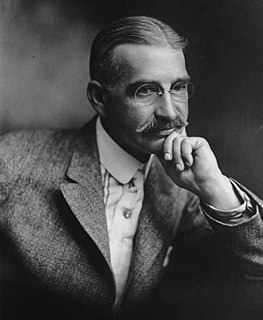A Quote by Gilbert K. Chesterton
It is quite an old-fashioned fallacy to suppose that our objection to scepticism is that it removes the discipline from life. Our objection to scepticism is that it removes the motive power. Materialism is not a thing which destroys mere restraint. Materialism itself is the great restraint.
Related Quotes
Our world, so we see and hear on all sides, is drowning in materialism, commercialism, consumerism. But the problem is not really there. What we ordinarily speak of as materialism is a result, not a cause. The root of materialism is a poverty of ideas about the inner and the outer world. Less and less does our contemporary culture have, or even seek, commerce with great ideas, and it is that lack that is weakening the human spirit. This is the essence of materialism. Materialism is a disease of the mind starved for ideas.
I was lucky enough to have had great success early on in life; to have had all the things the material world can offer. And yet, I realized that what I had actually neglected was the more spiritual side of myself, which has always been there. But it's easy for us in our culture to become consumed in a sense by materialism. Now materialism is fine. We live in a material world. I'm not saying that beautiful things don't enhance our lives. But, in our culture, we're never happy.
Capitalism is always in danger of inspiring men to be more concerned about making a living than making a life. We are prone to judge success by the index of our salaries or the size of our automobiles, rather than by the quality of our service and relationship to humanity-thus capitalism can lead to a practical materialism that is as pernicious as the materialism taught by communism.
Striving for longevity through versatility facilitates what we might call an ecological or true materialism. ... we are not truly materialist because we fail to invest deep or sacred meanings in material goods. Instead, our materialism connotes an unbounded desire to acquire followed by a throwaway mentality. True materialism could become part of a new ecological consciousness.
The objections to religion are of two sorts - intellectual and moral. The intellectual objection is that there is no reason to suppose any religion true; the moral objection is that religious precepts date from a time when men were more cruel than they are and therefore tend to perpetuate inhumanities which the moral conscience of the age would otherwise outgrow.





































